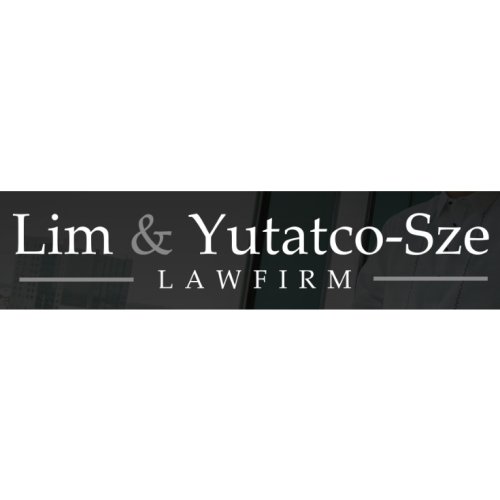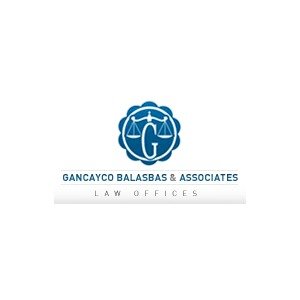Best Acquisition / Leveraged Finance Lawyers in Manila
Share your needs with us, get contacted by law firms.
Free. Takes 2 min.
List of the best lawyers in Manila, Philippines
About Acquisition / Leveraged Finance Law in Manila, Philippines
Acquisition and leveraged finance law encompasses the legal frameworks, agreements, and regulatory considerations involved when businesses or investors acquire companies or significant assets, often using borrowed funds. In Manila, Philippines, acquisition finance commonly refers to the funding provided for mergers, acquisitions, buyouts, or significant capital investments, frequently involving complex financial arrangements. Leveraged finance typically incorporates a high degree of borrowed money, often secured by the assets being acquired. Because the Philippine legal, regulatory, and financial environment has its own nuances, parties to these types of transactions must carefully consider how local laws, rules of the Bangko Sentral ng Pilipinas (BSP), and other regulatory authorities affect their deals.
Why You May Need a Lawyer
Seeking legal counsel is critical in acquisition or leveraged finance deals in Manila due to numerous factors. You may require a lawyer when structuring or negotiating an acquisition, conducting due diligence, managing compliance with local banking and foreign investment laws, or negotiating loan terms with financial institutions. Legal professionals can also assist in preparing and reviewing contracts, addressing regulatory filings with the Securities and Exchange Commission (SEC) and other bodies, managing cross-border issues, or resolving disputes that arise during or after the transaction. The assistance of an expert lawyer can minimize risks, ensure regulatory compliance, and protect your interests through every stage of the process.
Local Laws Overview
Key Philippine legal frameworks relevant to acquisition and leveraged finance include the Corporation Code of the Philippines, the Securities Regulation Code, the Foreign Investments Act, and BSP regulations. Acquisitions involving publicly-listed companies are subject to additional oversight and mandatory reporting requirements. Foreign investors must comply with restrictions on ownership in certain industries, as set forth in the Foreign Investment Negative List. Financial institutions are governed by strict lending and collateral regulations. Both structuring and executing deals often need prior approval from local authorities, and there may be antitrust or competition law considerations. Local legal practice emphasizes due diligence, clear contract drafting, and thorough regulatory compliance to safeguard all parties involved.
Frequently Asked Questions
What is the difference between acquisition finance and leveraged finance?
Acquisition finance refers to funds borrowed to acquire a company or assets, while leveraged finance uses higher levels of debt, often with assets or shares as collateral. In practice, many acquisition finance deals are highly leveraged.
What types of transactions commonly use leveraged finance in the Philippines?
Common transactions include mergers and acquisitions, management buyouts, privatizations, and large-scale capital investments, particularly where borrowers use assets or future cash flows as collateral.
Are there restrictions for foreign investors in leveraged buyouts in Manila?
Yes, certain sectors in the Philippines restrict or prohibit foreign ownership. The Foreign Investment Negative List specifies these limitations, and legal counsel is needed for compliance.
What are typical steps in a leveraged acquisition in Manila?
Key steps include due diligence, negotiation of acquisition and loan agreements, securing regulatory approvals, contract execution, fund disbursement, and post-acquisition integration.
Which regulators oversee acquisition and finance transactions in the Philippines?
The Securities and Exchange Commission, Bangko Sentral ng Pilipinas, Philippine Competition Commission, and where applicable, sector-specific regulators like the Insurance Commission or Energy Regulatory Commission, may be involved.
What are common types of security or collateral in leveraged finance deals?
Security interests can include real estate mortgages, share pledges, asset mortgages, receivables assignments, and guarantee arrangements.
Is approval from government authorities needed for all acquisitions?
Not all acquisitions require approval, but transactions meeting certain thresholds or affecting regulated sectors often do. Legal advice is crucial to determine which approvals are necessary.
What happens if a borrower defaults on a leveraged finance arrangement?
Creditors may enforce security interests, initiate foreclosure, or pursue legal remedies. The process depends on the contract terms and adherence to relevant foreclosure and insolvency laws.
How long does it take to complete a leveraged acquisition in Manila?
Timeframes vary significantly based on deal complexity, required approvals, and due diligence findings. Ranged from several weeks for simple transactions to several months for complex or regulated deals.
Can acquisition or leveraged finance deals be conducted in foreign currency?
Yes, but regulations on foreign currency loans, foreign exchange, and foreign investment reporting will apply. Consultation with banks and legal counsel is advised before proceeding.
Additional Resources
Knowledgeable guidance can be sourced from the following:
- Securities and Exchange Commission (SEC) Philippines - responsible for corporate registration and securities regulation - Bangko Sentral ng Pilipinas (BSP) - governs financial institutions and lending regulations - Philippine Competition Commission (PCC) - ensures fair competition in mergers and acquisitions - Department of Trade and Industry (DTI) - oversight for certain sectors or foreign investments - Local law firms specializing in mergers, acquisitions, and finance - Industry associations such as the Philippine Chamber of Commerce and Industry (PCCI)
Next Steps
If you are considering an acquisition or leveraged finance transaction in Manila, Philippines, it is advisable to:
- Consult with a qualified lawyer or law firm with expertise in corporate finance and M&A. - Prepare all necessary documents and clarify your transaction objectives and structure. - Conduct initial due diligence, including checks on target companies or assets. - Seek early regulatory guidance where needed to prevent delays or compliance issues. - Work collaboratively with your legal, financial, and business advisors to negotiate and finalize the best terms for your transaction.
Taking these steps and engaging professional assistance will help ensure a smooth and legally sound acquisition or leveraged finance process in Manila.
Lawzana helps you find the best lawyers and law firms in Manila through a curated and pre-screened list of qualified legal professionals. Our platform offers rankings and detailed profiles of attorneys and law firms, allowing you to compare based on practice areas, including Acquisition / Leveraged Finance, experience, and client feedback.
Each profile includes a description of the firm's areas of practice, client reviews, team members and partners, year of establishment, spoken languages, office locations, contact information, social media presence, and any published articles or resources. Most firms on our platform speak English and are experienced in both local and international legal matters.
Get a quote from top-rated law firms in Manila, Philippines — quickly, securely, and without unnecessary hassle.
Disclaimer:
The information provided on this page is for general informational purposes only and does not constitute legal advice. While we strive to ensure the accuracy and relevance of the content, legal information may change over time, and interpretations of the law can vary. You should always consult with a qualified legal professional for advice specific to your situation.
We disclaim all liability for actions taken or not taken based on the content of this page. If you believe any information is incorrect or outdated, please contact us, and we will review and update it where appropriate.

















